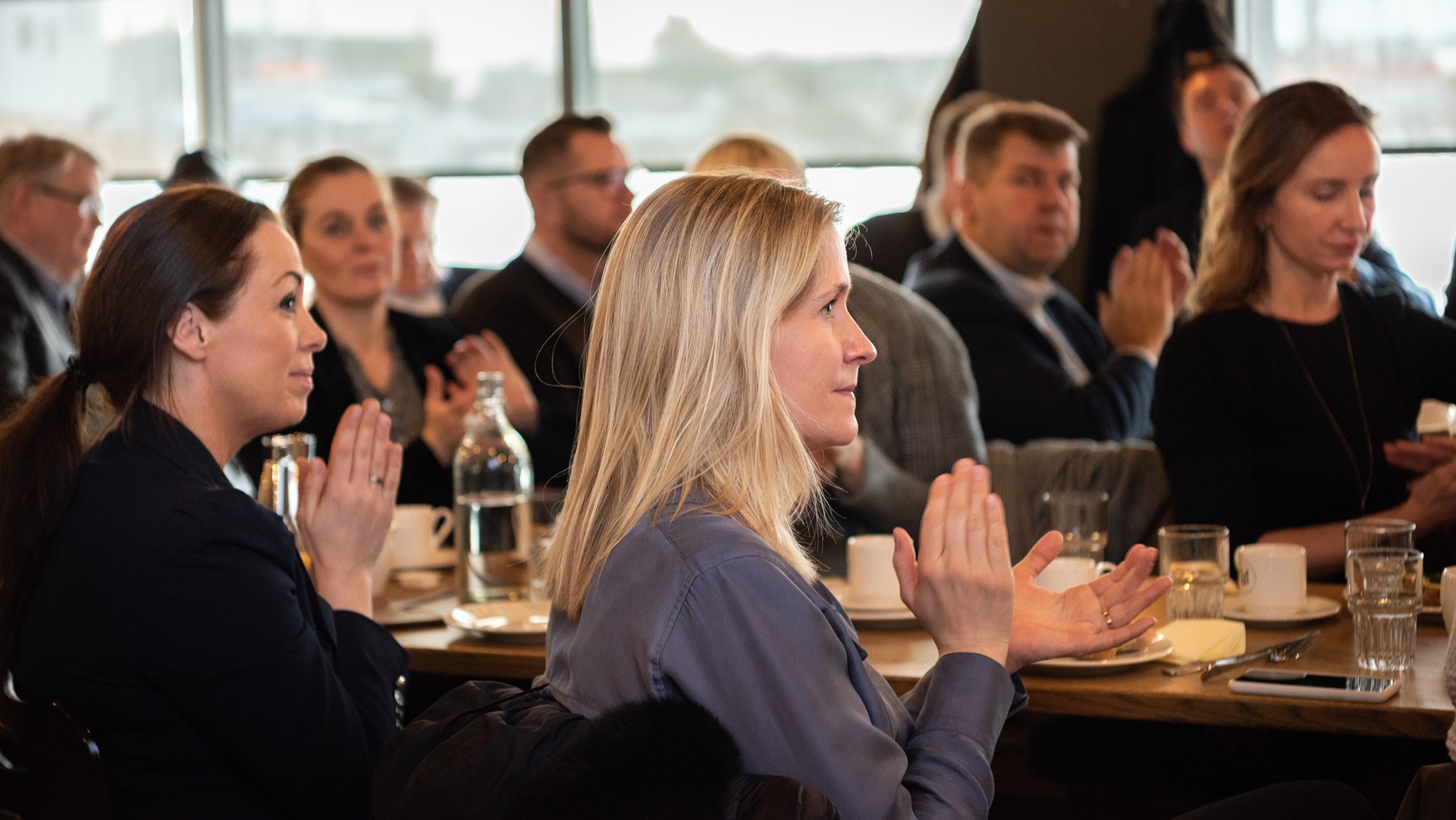Speakers: Þórður Snær Júlíusson, editor at Kjarninn, Birna Einarsdóttir, CEO of Íslandsbanki, Valmundur Valmundsson, chairman of fishermen's association and Gunnþór Ingvason, CEO of Síldarvinnslan, fishery in Neskaupstaður.
Voices of stakeholders
In order to explore what the fishing industry can do better and to increase understanding and trust, Fisheries Iceland (SFS) held four public meetings during late winter [of 2020] on issues relating to the industry. The meetings addressed transparency, environmental issues, social gains and innovation.
The fishing industry has been and remains a main pillar of Icelandic prosperity and a part of our culture. It is quite understandable that many have an opinion of such an important industry and the use of a natural resource. Although one can never ensure that all views will be harmonised, it is important to prevent suspicion and conflict strife from dominating the industry‘s relationship between the industry and the general public. An open and candid dialogue on the fisheries sector is the only way forward. The meetings were part of the policy formulation of the sector as regards social responsibility, and account has been taken of the views expressed, both from keynote speakers and from the audience.
Recordings from "Voices of stakeholders" meetings (only in Icelandic)
How can we increase transparency in the fisheries sector?
How can the fisheries sector do better in environmental matters?
Speakers: Andri Snær Magnason writer, Halldór Þorgeirsson, chairman of the Icelandic climate council, Gréta María Grétarsdóttir, ex CEO of Krónan and Gunnar Tómasson, CEO of Þorbjörn hf, fishery in Grindavík.
How does the fishing industry bring the most benefits to society?
Speakers: Sveinn Agnarsson, professor at the University of Iceland, Pétur H. Pálsson, CEO of Vísir hf. and Ásdís Kristjánsdóttir, director at the Confederation of Icelandic Enterprise (SA)
How do we increase innovation in the fisheries sector?
Speakers: Guðmundur Hafsteinsson innovation expert and Berta Daníelsdóttir CEO of the Iceland Ocean Cluster
Workshops
Hildur Hauksdóttir, a Sustainability officer, began work as an employee of Fisheries Iceland in October 2019. Her tasks focus on environmental and social issues. She has been involved in analysing what the social responsibility of the fisheries industry involves and the manner in which the sector can rise to the challenge while strengthening and improving business operations. A group of Fisheries Iceland members was assembled to work closely with the the staff and board on formulating the social responsibility policy.
A workshops was conducted on corporate social responsibility on 4 March 2020. All members of Fisheries Iceland were invited, and over 20 managers of Icelandic fisheries companies attended. Attendees were given the task of preparing the key focus points for Icelandic fisheries as regards environmental issues and social responsibility. Six key questions were asked for four working groups to work on in three project sessions. The subjects involved climate change, ocean affairs, responsible production, governance, human resources and safety issues. Lively discussions ensued in all working groups where ideas were whetted and presented and finally prioritised.
